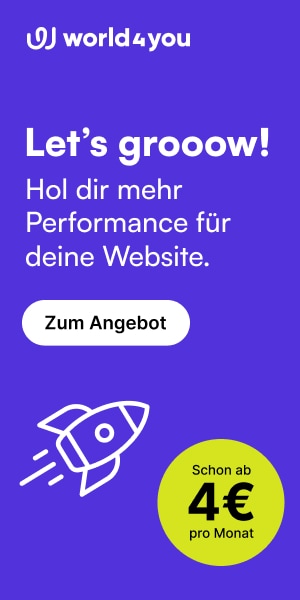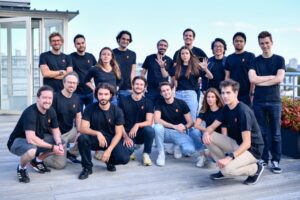NM Genomix: Bringing The First Genetic Tests to Bulgaria that Give Parents More Information About Their Unborn Child

‘The secret to why some people get so sick from COVID could lie in their genes’ states a recent title of MIT Technology Review. The article is about a research of a Californian genetics company that’s trying to find a link between gene mutations and the new virus. And while there’s still no proven direct correlation, and while some US companies are racing and trying to develop fast at-home genetic tests with arguable relevance, one is clear – genetic tests have been part of the personalized medicine and diagnostics for quite some time and there’s proven traction in areas such as gynecology, cardiology, oncology, and even mental health. Although not widely spread and not part of the National Health Insurance Fund’s business, genetic tests have found their place also in the Bulgarian healthcare ecosystem.
The story starts with two gynecologists from the Sofia based maternity hospital Sheynovo who’ve been working together since 1991. Always tempted by the new research in their sphere and willing to introduce new and better methodologies in their work, Dr. Dimitar Georgiev and Dr. Natchko Tchalmanov turned into medical entrepreneurs of a kind.
The science and the ethics of genetic testing
NM Genomix – a company for data-based genetic tests, is the fourth joint endeavor of the two physicians. The previous one was a stem cells bank they started in the early 2000s after they work at Sheynovo, and managed to exit successfully a decade ago. “From today’s standpoint I see there are already better technologies, but back then this was the highest level of development of the medicine,” explains Dr. Georgiev. With NM Genomix, over the past 12 years in Bulgaria, they’ve managed to turn a prenatal genetics test called PrenaTest into something like the Xerox or Pampers in their particular segment, creating a still modest but growing national market of around €8M annually. And ever since, they’ve been introducing different tests (six main, and dozens of other options too) for a wide palette of preconditions, while trying to educate both colleagues and the market about the specifics of genetic tests.
It all started when Dr. Tchalmanov and Dr. Georgiev found out about PrenaTest, a novel non-invasive prenatal blood test that detects changes in the genetic material of the unborn child, known as chromosomal disorders. Seeing the product of the German company LifeCodexx as a medical breakthrough the two colleagues decided to introduce it to the Bulgarian market too. Up until then the methodologies for identifying genetic changes had been invasive, causing risk for the fetus, and not least, too slow. NM Genomix was the first company to offer the tests in Bulgaria.
Fast-forward to today, the company has a nationwide network of labs that are taking the samples, and a team of 12 scientists and microbiologists who are responsible for the interpretation of the results delivered by the certified laboratory in Germany in two days. “To date, we have three offices in Bulgaria, and dozens of partner laboratories across Bulgaria, even in the smallest towns and near the borders, and we’ve been doing up to 170 Prenatests monthly,” summarizes Dr. Georgiev. A local laboratory that may lower the price of the test has also been discussed, yet hard to implement nowadays. NM Genomix is selling the tests at prices between €300 and €3K (depending on the necessary spectrum of the analysis – ed.n.) through a wide network of partners – from maternity hospitals to digital health platforms, and online directly to consumers. The founders are planning to put even more effort into digitizing the operations, yet consciously.
“We are willing to make it as easy as possible for our customers – they can now purchase and receive their results online. Yet, what we don’t want to happen is to leave it all to the patients. There are already many companies offering at-home genetic test kits and lifestyle tests, but this is not serious. As physicians, we cannot allow ourselves to sell something that is not scientifically and evidence-based and leave patients to interpret results on their own. This is not ethical. NM Genomix makes sure that the results and interpretations that patients bring to their doctors are based on evidence and solid expertise,” explains Dr. Dimitar Georgiev. Indeed, NM Genomix is planning to enter the lifestyle genetic tests (nutrition, skincare, fitness-related – ed. n.) segments too, but again with evidence-based products.
Foundations for life science in Bulgaria
Years of tackling all kinds of challenges on the local market – from the resistance of the healthcare system to building trust among customers, educating them, and identifying the right channels to reach the right target audience for the products, NM Genimix has managed to reach market leadership. “Doing all this, as a physician I want to believe that we’ve also contributed to the development of the medical offering in Bulgaria. We’ve imported a lot of know-how and we are glad to see that more companies have started following and working with the technology,” says the co-founder. For his own company, Dr. Georgiev envisions further digitalization, entering new verticals, offering more types of tests, and strengthening the laboratory network, yet his mission is not limited to the own venture.
Dr. Dimitar Georgiev sees tremendous potential for developing but also applying life science, digital health, and medical innovations in the country, that could even have a spill-over effect in the surrounding markets. Alongside NM Genomix, he’s also one of the initiators of the annual life science forum Biotech Atelier, which will be conducted for the third time this year. The conference gathers scientists, doctors, researchers, entrepreneurs, corporates, and policymakers in an attempt to impart knowledge and also speed up the development of the local biotech ecosystem. “I want to see an ecosystem that works together and moves forward, even if it means more competition as I believe quality competition is also healthy, it means we are all moving forward and this all benefits the patients.”
Q&A: What’s possible and what is not in Bulgaria
 Trending Topics: PrenaTest is your leading and most established product. What other tests does NM Genomix offer?
Trending Topics: PrenaTest is your leading and most established product. What other tests does NM Genomix offer?
Dr. Dimitar Georgiev: We have a very big portfolio of tests that literally looks like a phonebook. We, however, put the most effort into five-six of them, making sure they reach the right customers and are communicated properly. One step at a time. To be more specific, we have paternity tests – medical statistics for instance show that 10% of the newborns are not children of the officially inscribed father. We also have quite interesting telomeres tests for testing biological age, oncological, ophthalmological, even mental health ones. We have introduced to the local market the first and only test for monitoring and evaluation of the effect of chemotherapy for solid tumors via counting and analysis of free circulating tumor cells – Maintrac; the first non-invasive prenatal test for a wide range of fetal genetic anomalies – GeneSafe, the first pharmacogenetics test in psychiatry. We recently introduced the first oncological test that matches the individual cancer patient with the most effective cancer treatment thanks to a technology allowing us to generate micro 3D tumors based on the patient’s tissue and quickly see which treatment would be more effective-IndiTreat. These are just several examples, the list can go on and on.
An own laboratory in Bulgaria may lower the price of the tests but you say it’s not on the agenda right now. Why?
I think there are two relevant aspects of this discussion. On the one hand, most of our partners whose novel tests we offer on the local market are European companies. Therefore, there was no disruption in the supply chain process and delivering results timely, even in the pandemic situation. As of the local laboratory, we have discussed this internally, of course. For the time being, this is a huge investment for us, and it’s quite hard to make such a step given the context that gene testing companies are not supported by the healthcare system.
There are countries in which such tests are subsidized also by the national health insurance funds. What’s the situation here?
We’d also love to work with the government in Bulgaria. I believe collaboration is the only way to innovate and bring change. Healthcare and medicine are however very conservative sectors, it’s really hard to innovate there. This is a challenge we face and try to solve all the time. Indeed, our priority is not to work with the National Health Fund so far, but to assure medical innovation and personalized medicine reach patients and are affordable. Of course, we want to make profits, but in an ethical and fair way and always with the care of the patients.
+ Learn more about NM Genomix and its different tests here. +


























